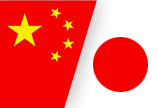 |
| Special: China-Japan Relations |
Lawmaker Keiji Furuya, who chairs the National Public Safety Commission, said on his website that he paid respects Sunday morning at the Yasukuni shrine ahead of a festival that starts Monday.
Furuya's visit followed a worship by Internal Affairs and Communications Minister Yoshitaka Shindo on April 12. Repeated visits to the controversial shrine by Japanese lawmakers and ministers exposed the country's right-leaning politics and are criticized by Japan's neighboring countries that suffered from its brutal wartime aggression.
Furuya says he regularly visits Yasukuni at spring and autumn festivals, and on Aug. 15, the day Japan surrendered in 1945.
The shrine's spring festival runs from Monday to Wednesday this year.
It is "natural for a Japanese citizen to pay tribute to the spirits of those who sacrificed their lives for the state," Furuya was quoted by Japan's Kyodo News as saying on his shrine visit.
The Yasukuni Shrine is considered as a symbol of Japanese militarism during the World War II as 14 convicted war criminals during the WWII were enshrined there among millions of Japanese war dead.
Furuya, who paid the visit as state minister, also visited the shrine in April last year on the Aug. 15 anniversary of Japan's surrender in World War II and again in October.
Since Abe's administration launched in December 2012, the prime minister has not refrained his cabinet members from worshipping the shrine and he himself also visited Yasukuni on the first anniversary of the launch of his government on Dec. 26, 2013.
Abe's shrine visit triggered strong opposition worldwide, including China and South Korea. The United States, Japan's key ally, also commented that Abe's visit was disappointed and will worsen Japan's relations with China and South Korea.
The US comments was considered by the Japanese political circle as a serious warning over the shrine visit and forced Japan to dispatch envoys to Washington to explain Abe's behavior.
Abe reportedly will not visit the shrine during the upcoming spring festival to avoid provoking the United States as US President Barack Obama is slated to visit Japan next week. However, constant visits by Japan's ministers to the shrine proved the country's right deviation and would shadow Obama's trip here, as the United States has called on Japan to mend ties with its neighbors.
Relations between Japan and neighboring China and South Korea have frayed due to not only territorial disputes, but also Japan''s attitude toward its wartime history, including the Yasukuni issue.
China and South Korea have urged Japan to face up to its past wartime history and maintain a correct attitude toward the history, rather than trying to whitewash its aggression past.